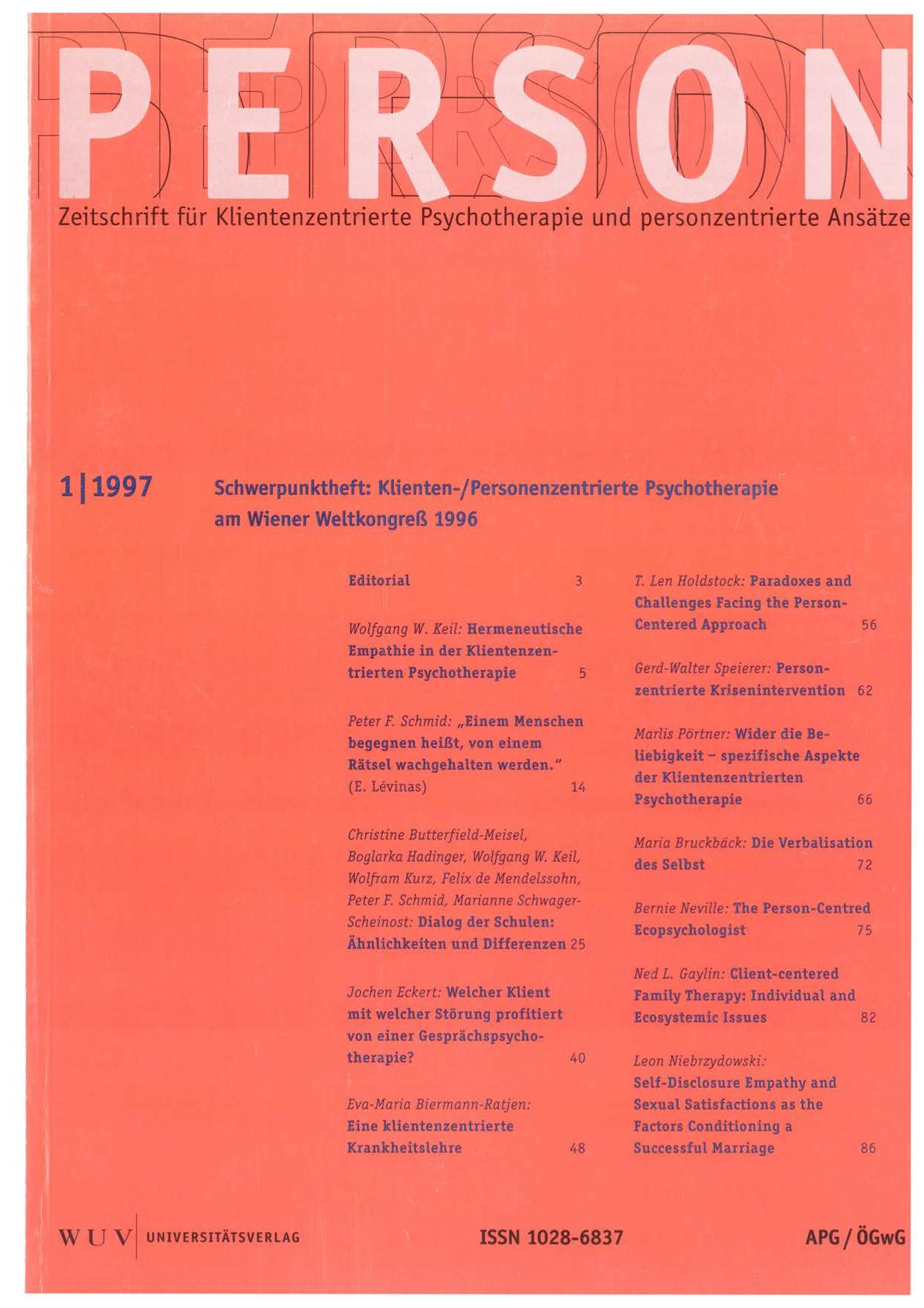Paradoxes and Challenges Facing the Person Centered Approach
##plugins.themes.bootstrap3.article.main##
##plugins.themes.bootstrap3.article.sidebar##
Abstract
As we approach the 21st Century, major challenges await the Person-Centered (PC) approach if it is to continue in the pioneering spirit of Carl Rogers and remain true to being process oriented. One challenge relates to the resolution of the internal contradictions within the approach. Another relates to the ethnocentrism of the approach. Both challenges center on the concept of the self that underlies the PC approach. In terms of recent work in mainstream psychology and several other disciplines on the concept of the self, different models of the self seem to be entertained in PC therapy for the client and the therapist. The concept appropriate for optimal functioning of the client can be described as high on agency and independence (the separate self) and that for the therapist as high on agency and relatedness (the autonomous-relational self). Resolution of this discrepancy can not only resolve the internal contradictions within the approach, but allign the purpose of PC therapy with recent models of the concept of the self underlying mental health, as well as facilitate the approach to transcend its individuocentric cultural boundarie.
Zitationsvorschlag
Downloads
##plugins.themes.bootstrap3.article.details##
Therapieprozeß, Selbstkonzept

